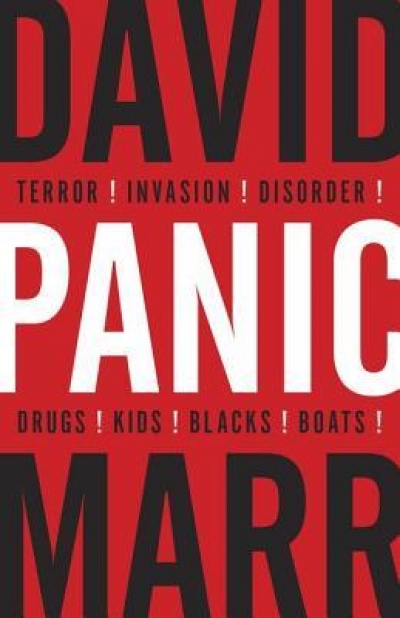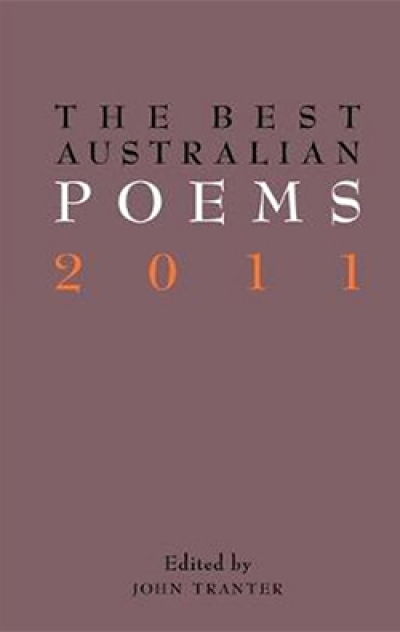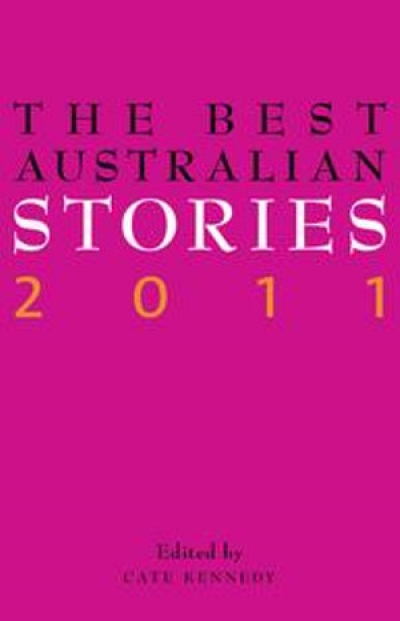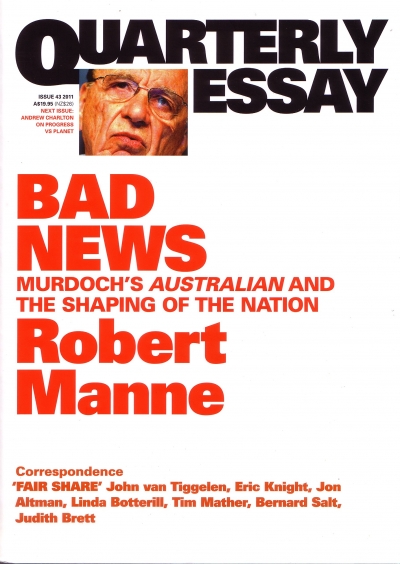Black Inc
Reaching One Thousand: A Story of love, motherhood and autism by Rachel Robertson
by Carmel Bird •
The Sweet Spot: How Australia Made Its Own Luck – And Could Now Throw It All Away by Peter Hartcher & The Fog On The Hill: How NSW Labor lost its way by Frank Sartor
by Joel Deane •
The Best Australian Stories 2011 edited by Cate Kennedy
by Ruth Starke •
Into the Woods: The Battle for Tasmania’s Forests by Anna Krien
by Peter Mares •
Bad News: Murdoch’s Australian and the Shaping of the Nation (Quarterly Essay 43) by Robert Manne
by Robert Phiddian •








